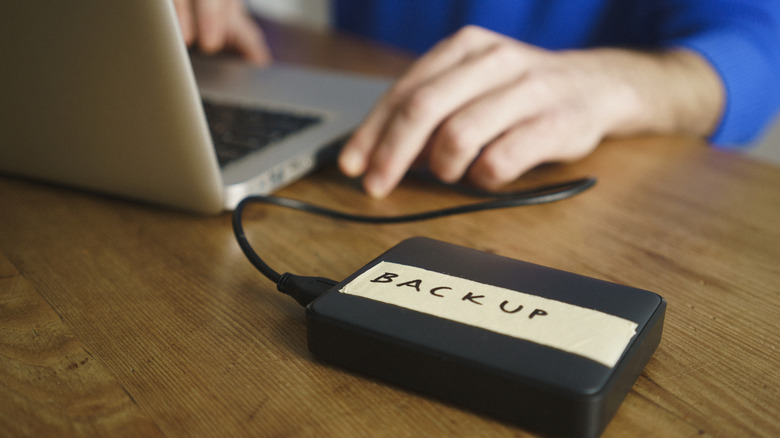Do USB Drives Get Heavier When You Store More Data? It's Actually The Opposite
USB drives can store an incredible amount of data, as our list of the largest external USB drives by price testifies. However, surely all that data adds something to the weight of the device. After all, if you pick up a single book with one hand and a sack of books with the other, you're bound to notice the difference. It's just logical, isn't it? Well, the truth of the matter is that when it comes to data stored on a USB drive, the amount of information stored has a negligible effect on its weight. And when we say negligible, we really mean it.
And then, just to throw a curveball, science dictates that the more data is stored on the drive, the lighter it becomes. This might seem counterintuitive, but there are well-grounded reasons why this should be. To understand why this is and how data can actually remove weight, we have to take a quick science lesson. We'll delve into that in the next section. But first, let's address just what we mean when we refer to the weight difference being "negligible." The difference in weight between a full hard drive (lightest) and an empty hard drive (heaviest) is not something you'll establish on the bathroom scale, or any other scale for that matter. To measure the difference, you'd need to measure more than one USB drive. In fact, you'd need to weigh more USB drives than currently exist.
Why does adding data lighten a USB drive?
We have now established that the weight difference between a full and empty hard drive isn't something to worry about when packing for a flight. However, we've also established that there is a weight difference, no matter how slight. So, what is the science that supports this fact? Well, with the exception of computers for quantum computing, our everyday computers are binary machines that work by churning through huge amounts of ones and zeros. This applies to how the data is processed and also how it's stored on USB drives.
In the case of USB drives, minute transistors are used to identify whether a storage location is a one or a zero. Paradoxically, a one is represented by having no charge, and for a zero, the float gate of the transistor carries a charge. This charge is applied by adding electrons. Electrons are minuscule beyond a scale that the human mind can comfortably comprehend, but they do still have mass. According to the Encyclopedia Britannica, this mass is 9.1093837015 × 10^−31 kilograms. Therefore, a mostly empty USB drive will have this extra amount of mass in each of its memory locations. So, yes, technically speaking, a USB drive will gain weight when it's empty, but it's really not worth cramming a few extra movies onto it in the hope of saving enough weight to beat airline weight limits.

